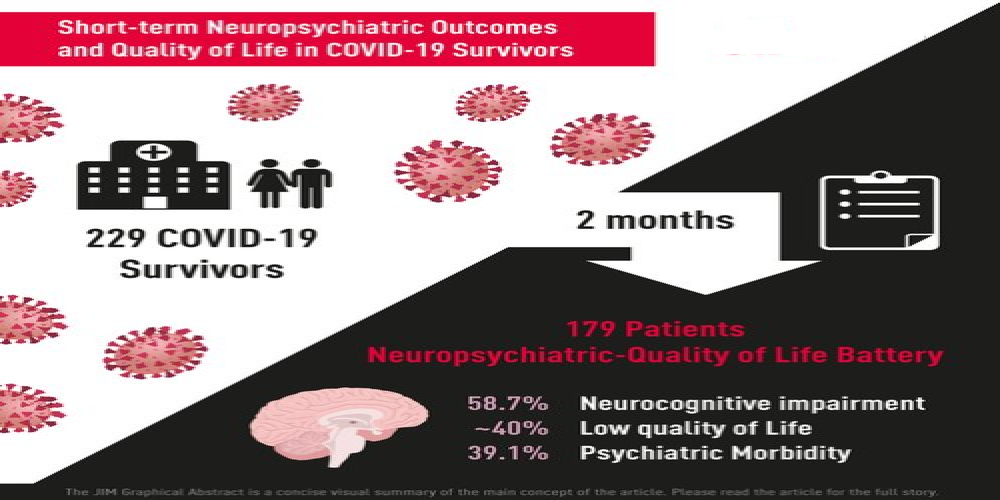Authors: Joanna Hellmuth 1 2, T Allen Barnett 3, Breton M Asken 4, J Daniel Kelly 5, Leonel Torres 6, Melanie L Stephens 4 7, Bryan Greenhouse 6, Jeffrey N Martin 5, Felicia C Chow 7 8, Steven G Deeks 9, Meredith Greene 10, Bruce L Miller 4 7, Wesley Annan 4 7, Timothy J Henrich 6, Michael J Peluso 9
As cases of coronavirus disease 2019 (COVID-19) mount worldwide, attention is needed on potential long-term neurologic impacts for the majority of patients who experience mild to moderate illness managed as outpatients. To date, there has not been discussion of persistent neurocognitive deficits in patients with milder COVID-19. We present two cases of non-hospitalized patients recovering from COVID-19 with persistent neurocognitive symptoms. Commonly used cognitive screens were normal, while more detailed testing revealed working memory and executive functioning deficits. An observational cohort study of individuals recovering from COVID-19 (14 or more days following symptom onset) identified that among the first 100 individuals enrolled, 14 were non-hospitalized patients reporting persistent cognitive issues. These 14 participants had a median age of 39 years (interquartile range: 35–56), and cognitive symptoms were present for at least a median of 98 days (interquartile range: 71–120 following acute COVID-19 symptoms); no participants with follow-up evaluation reported symptom resolution. We discuss potential mechanisms to be explored in future studies, including direct viral effects, indirect consequences of immune activation, and immune dysregulation causing auto-antibody production.
For More Information: https://www.ncbi.nlm.nih.gov/pmc/articles/PMC7852463/
